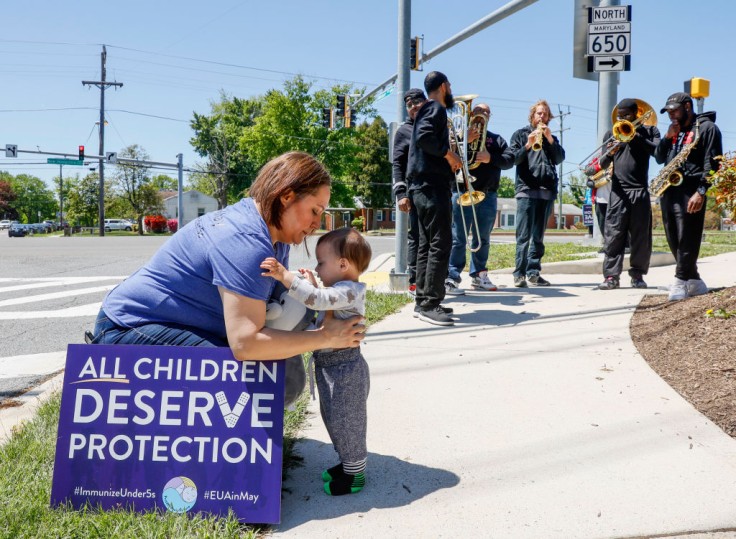
On Saturday, June 18, the U.S. Food and Drug Administration (FDA) authorized the rollout of the COVID-19 vaccine for under 5 years old. Immediately after the FDA gave the green light, U.S. Centers for Disease Control and Prevention (CDC) Director Dr. Rochelle Walensky confirmed that Pfizer and Moderna jabs are now eligible for children from 6 months to 5 years of age.
The first shots for the youngest age group have been administered across various U.S. sites, including Walgreens and other pediatrician clinics, since Monday, June 20, with health officials saying this will finally give the kids their normal childhood back. However, a survey from the Kaiser Family Foundation showed that 38 percent of the parents would not rush to book an appointment for their children because of the potential side effects.
But what side effects can parents expect from the COVID-19 vaccine for under 5 years old, and what can they do to alleviate these symptoms?
Read Also: Third COVID-19 Booster Shot for Eligible People May Be Rolled Out By Fall, According to CDC
Most Common Side Effects: Drowsiness, Fatigue, Irritability, and Arm Pain
Virginia pediatrician Dr. Krupa Playforth reviewed the FDA data for the vaccines and told Huffington Post that both Pfizer and Moderna for the youngest age group are generally well-tolerated. However, many kids who participated in the trials for months under the FDA scrutiny reported drowsiness and irritability as the most common side effects.
The experts said that parents might notice that babies will likely want to sleep longer or have more episodes of crankiness. These symptoms are expected to last for at least a day.
Data showed that 45 percent of kids from 2 to 4 years old, who got the Pfizer jab during the trials, developed fatigue after their first jab. Likewise, 62 percent of kids injected with Moderna also felt fatigued.
Many kids also reported pain in their arms. Doctors recommended giving the children Tylenol (acetaminophen), especially if the pain affects their activities. However, the experts do not recommend giving the children pain medication before getting vaccinated.
CDC accepted the Advisory Committee on Immunization Practices’ (ACIP) recommendation that children ages 6 months and older should be vaccinated against #COVID19.
— CDC (@CDCgov) June 18, 2022
More: https://t.co/Uj84iHZLx9 pic.twitter.com/iR98pkTG98
Dr. Grant Paulsen, the principal investigator of the COVID-19 vaccine for under 5 years old, told CNN that the side effects are "very similar" to what the older kids and adults have experienced with Pfizer and Moderna jabs. However, the mild and moderate side effects were fewer in this youngest age group than in other ages.
"My big picture for parents is really [that] the side effects should not be alarming," the doctor said.
COVID-19 Vaccine and Fever
Based on the trial's outcome, younger children are 10 percent less likely to develop a fever with a Pfizer vaccine than with the Moderna vaccine. Even then, the fever didn't reach beyond 104 degrees, and only one percent of the trial participants had it.
Paulsen also assured parents that they could continuously give their kids acetaminophen or ibuprofen for fever. Generally, however, most children will be better a day after their jabs.
The experts closely watched the symptoms of myocarditis, or the inflammation of the heart muscles, among children during the trials because this was common in adults and teenagers. However, this was not a problem for the youngest age group.
FDA vaccine czar, Dr. Peter Marks, told NBC News Chicago that whatever vaccine is available from the pediatrician or the health care provider is the one parents should have for their kids. Pfizer will be administered in three doses and spaced out over three months, while Moderna will be given in two doses within one month.